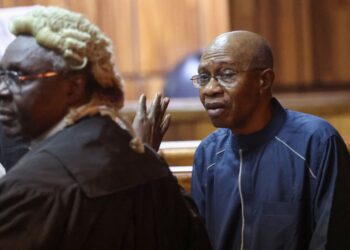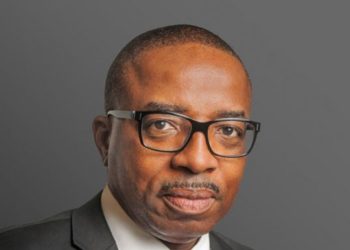The Nigerian Communications Commission (NCC) has revealed that the telecommunications sector’s contribution to the country’s Gross Domestic Product (GDP) reached a remarkable 16 percent in the second quarter of 2023. This surge in GDP contribution was disclosed in a recent report from the Nigeria Bureau of Statistics (NBS), according to Prof. Umar Danbatta, the Executive Vice Chairman of NCC.
Prof. Danbatta made this announcement during his keynote address at the Telecom Executives and Regulators Forum (TERF), organized by the Association of Telecommunications Companies of Nigeria (ATCON) in Lagos.
The data reflects significant growth in the telecommunications sector’s contribution to the nation’s economy. In the first quarter of 2023, the sector contributed 14.13 percent to GDP, marking an increase from the previous year’s all-time-high record of 15 percent in the second quarter of 2022. The impressive 16 percent contribution in the second quarter of 2023 sets a new record.
The theme of the forum, “Success Factors and Barriers to National Broadband and Digital Economy Aspirations,” provided a platform for Prof. Danbatta to discuss the sector’s impressive growth in broadband penetration since 2015. He attributed this success to sustained regulatory excellence, operational efficiency, and collaborative efforts by the NCC and industry stakeholders.
Despite the notable achievements, Prof. Danbatta acknowledged that barriers to broadband deployment still exist, including issues related to right of way (RoW), fiber cuts, high capital requirements, multiple taxations, and regulations. The NCC is actively addressing these challenges by navigating regulatory complexities, fostering digital inclusion and literacy, enhancing security measures, and collaborating with stakeholders like ATCON.
One significant challenge identified by the NCC is the issue of multiple taxes, with approximately 46 different taxes directed at the telecom sector. These taxes, levied by various agencies and tiers of government, particularly at the state and local levels, place an economic burden on telecom subscribers in the country.
Regarding connectivity, Prof. Danbatta noted that while access gaps were identified in various parts of the country, efforts to reduce these gaps have been successful, thanks to government commitments to a digital economy, infrastructure development, and digital inclusion initiatives.
In his opening remarks, Mr. Tony Izuagbe Emoekpere, President of ATCON, highlighted the forum’s purpose, emphasizing the importance of discussions on critical national infrastructure to attract further investments in the telecom sector and address key challenges.
Meanwhile, telecom operators have reiterated the need for an upward review of telecom tariffs, citing the sector’s changing dynamics. They emphasized the importance of granting the NCC full independence to implement policies that support the sector’s development.
Gbenga Adebayo, Chairman of the Association of Licensed Telecoms Operators of Nigeria (ALTON), called for an urgent tariff review, stating that the cost of delivering telecom services has become unsustainable. He also stressed the necessity of the NCC’s total independence to facilitate regulatory policies that promote sector growth while maintaining its GDP contribution.
As the telecom sector continues to thrive and adapt to evolving demands, stakeholders are committed to addressing challenges and supporting its sustainable development to further boost Nigeria’s digital economy.











